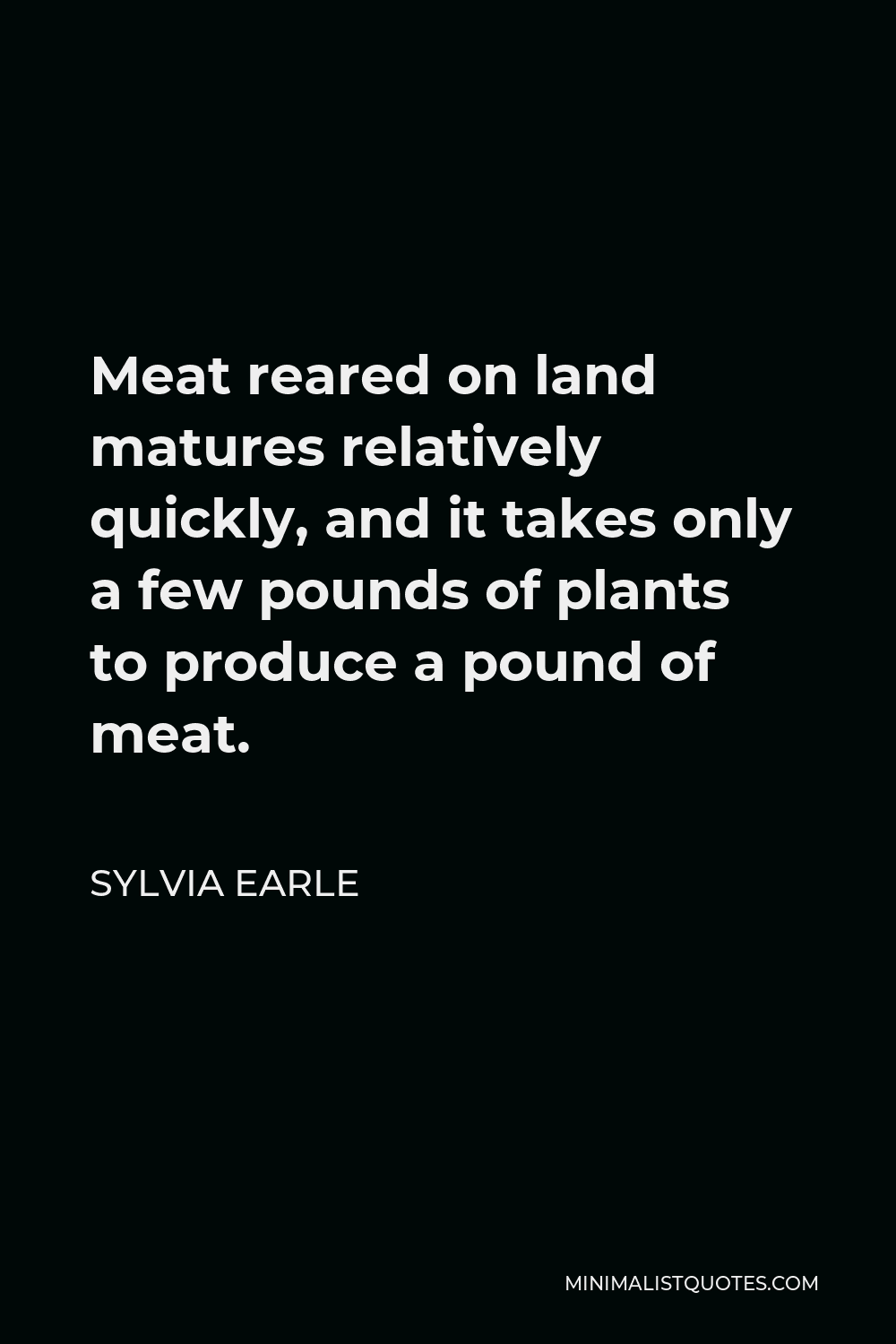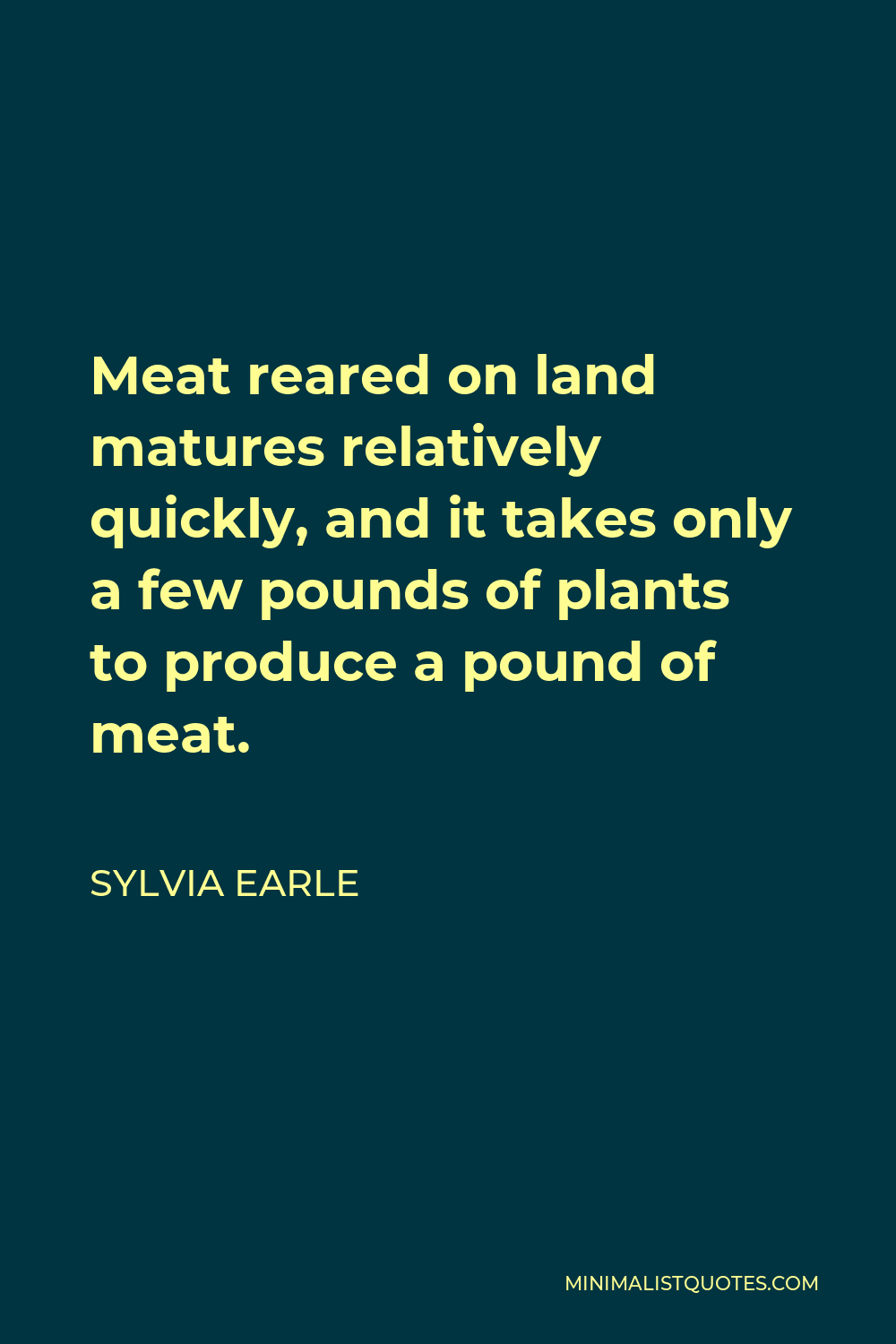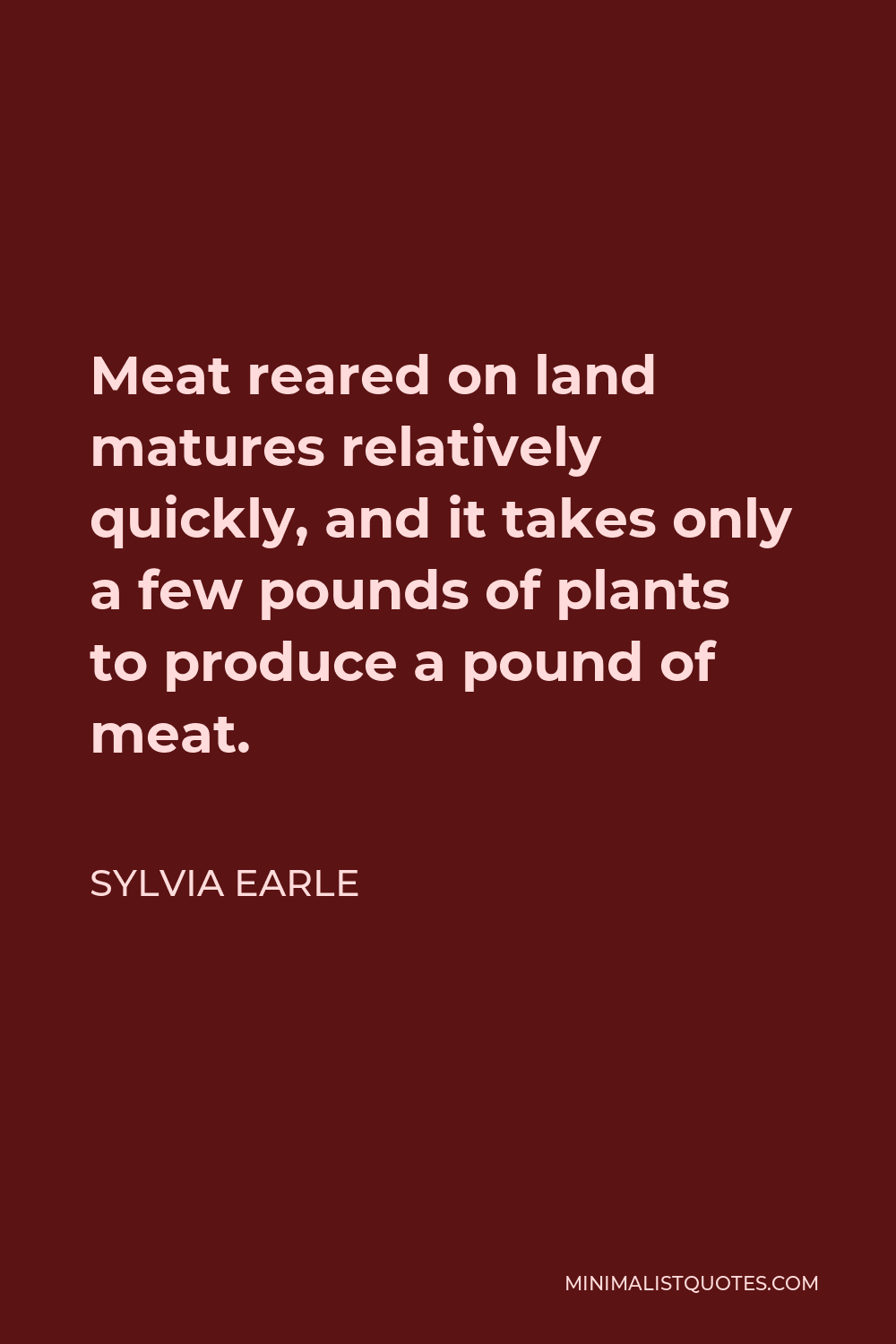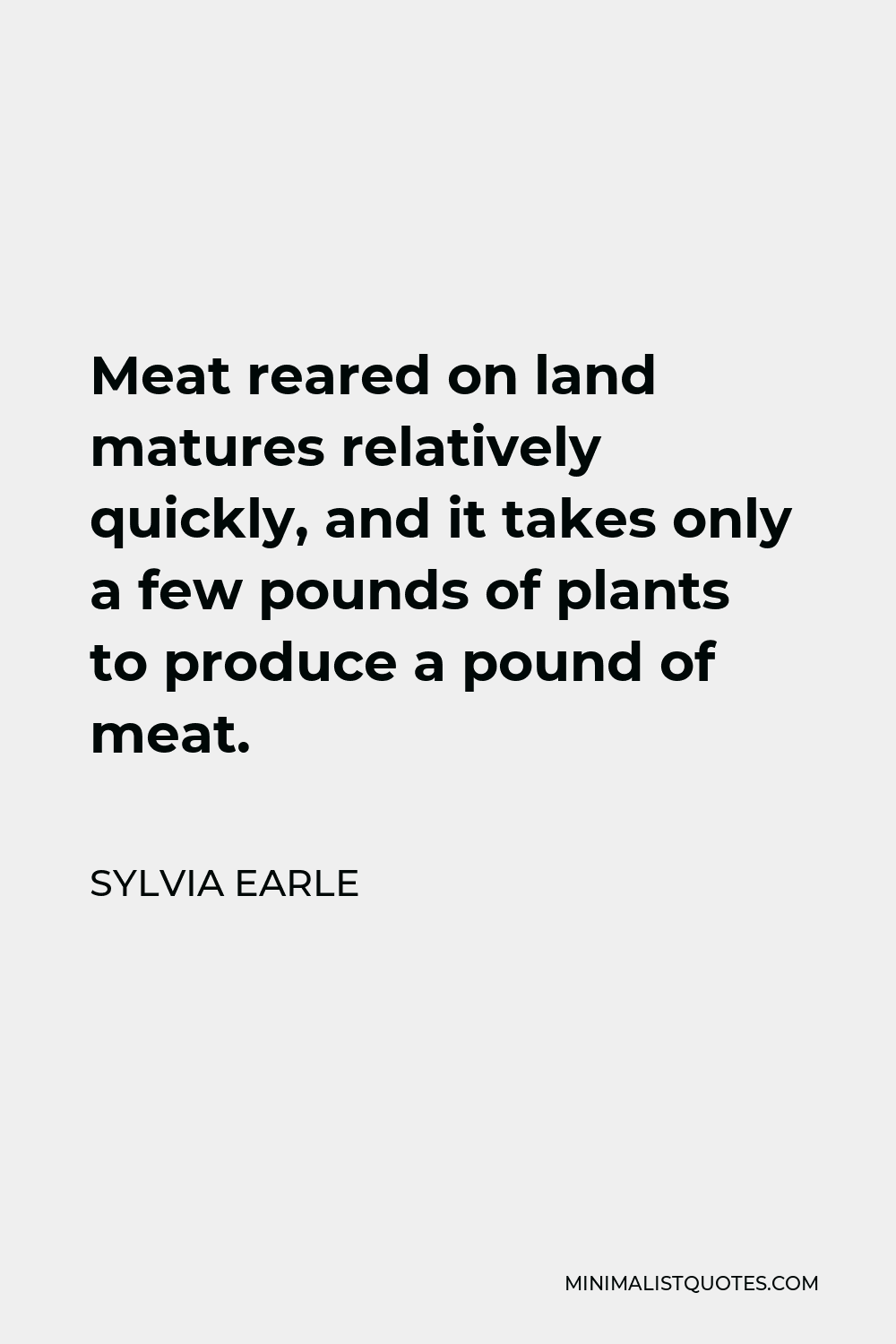For humans, the Arctic is a harshly inhospitable place, but the conditions there are precisely what polar bears require to survive – and thrive. ‘Harsh’ to us is ‘home’ for them.
SYLVIA EARLEMeat reared on land matures relatively quickly, and it takes only a few pounds of plants to produce a pound of meat.
More Sylvia Earle Quotes
-





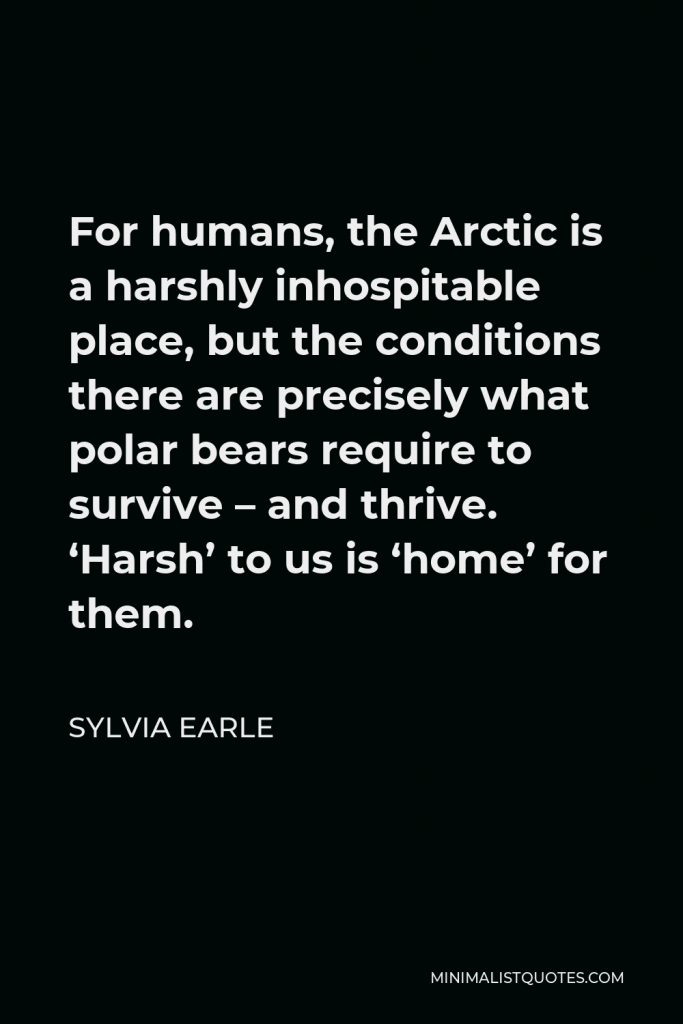

-





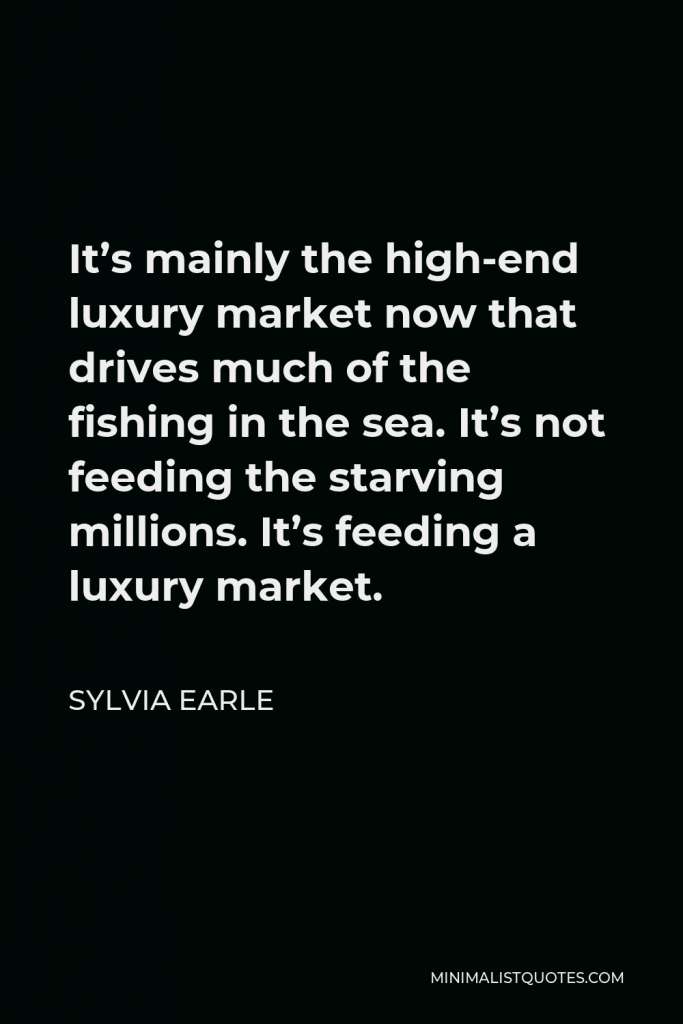

It’s mainly the high-end luxury market now that drives much of the fishing in the sea. It’s not feeding the starving millions. It’s feeding a luxury market.
SYLVIA EARLE -







I love music of all kinds, but there’s no greater music than the sound of my grandchildren laughing; my kids, too.
SYLVIA EARLE -





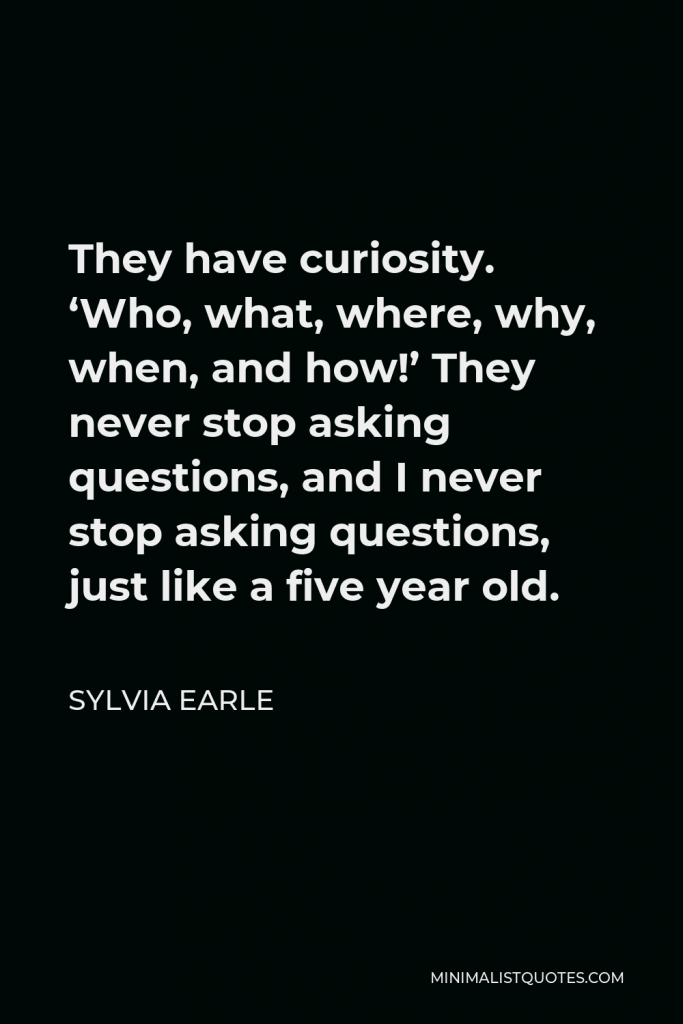

They have curiosity. ‘Who, what, where, why, when, and how!’ They never stop asking questions, and I never stop asking questions, just like a five year old.
SYLVIA EARLE -





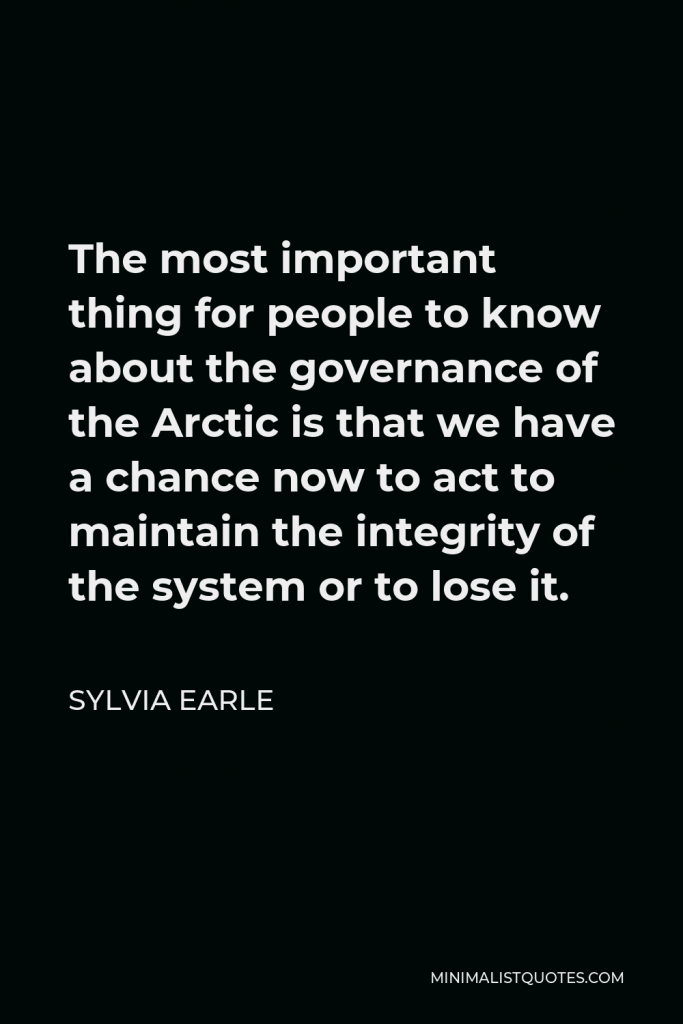

The most important thing for people to know about the governance of the Arctic is that we have a chance now to act to maintain the integrity of the system or to lose it.
SYLVIA EARLE -







They have a lateral line down their whole body that senses motion, but maybe it does more than that.
SYLVIA EARLE -





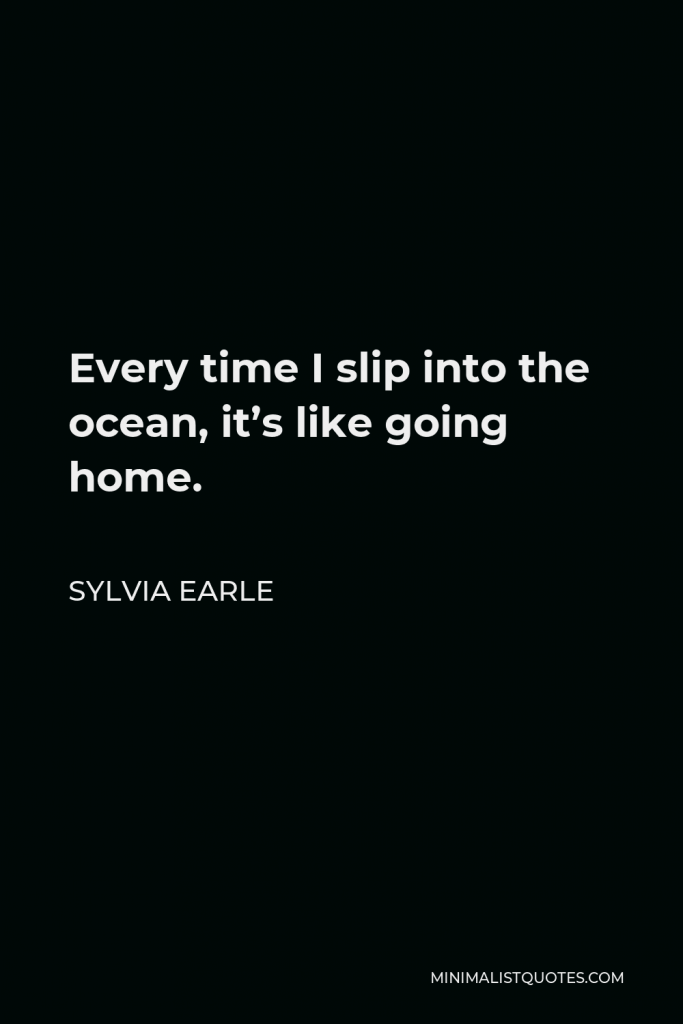

Every time I slip into the ocean, it’s like going home.
SYLVIA EARLE -





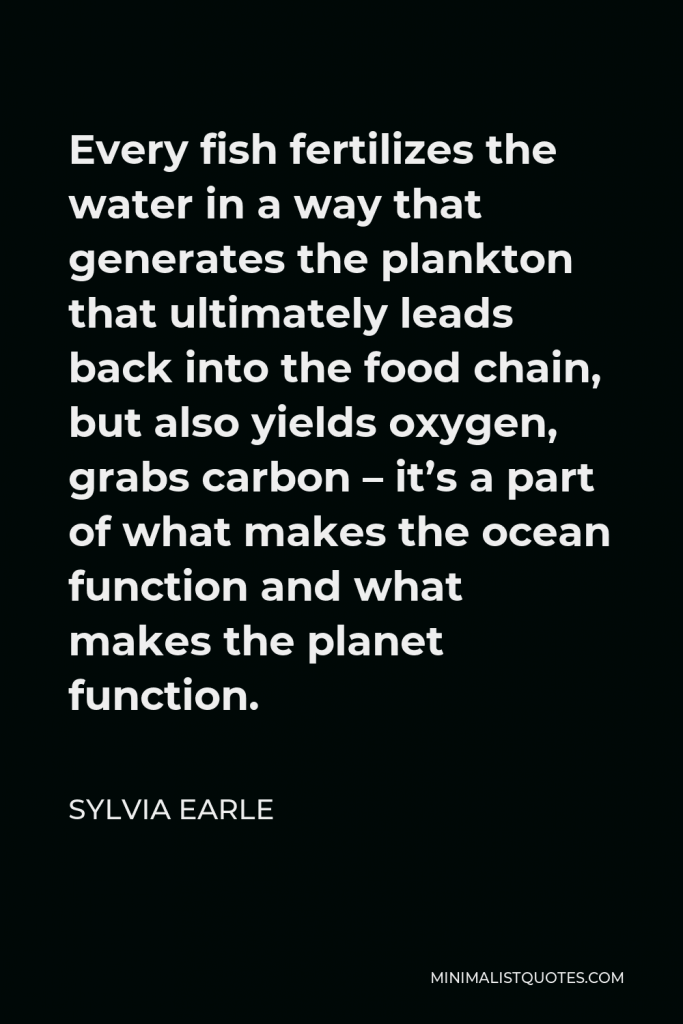

Every fish fertilizes the water in a way that generates the plankton that ultimately leads back into the food chain, but also yields oxygen, grabs carbon – it’s a part of what makes the ocean function and what makes the planet function.
SYLVIA EARLE -





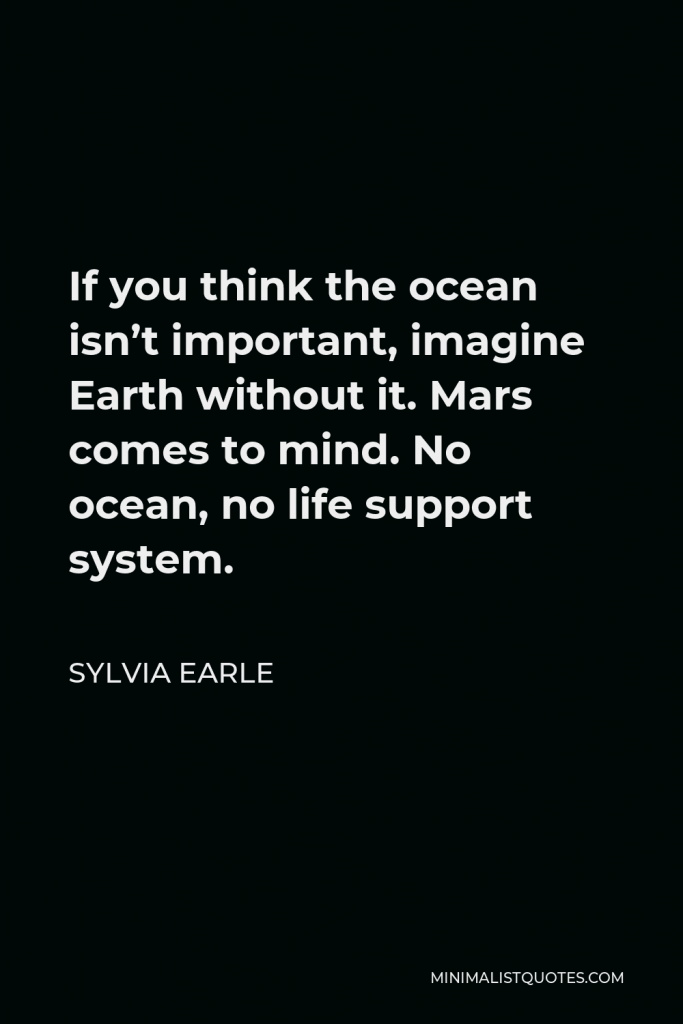

If you think the ocean isn’t important, imagine Earth without it. Mars comes to mind. No ocean, no life support system.
SYLVIA EARLE -







They are so beautiful, a pair is in the Museum of Modern Art. The set I have are ruby red. I call them my ruby flippers.
SYLVIA EARLE -





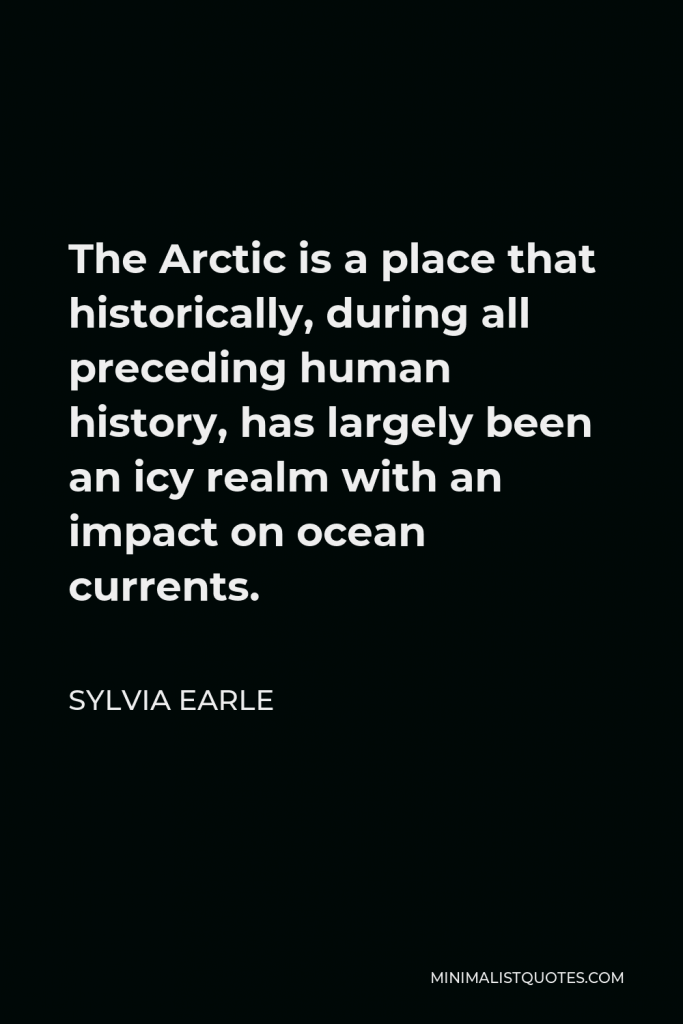

The Arctic is a place that historically, during all preceding human history, has largely been an icy realm with an impact on ocean currents.
SYLVIA EARLE -







For heaven’s sake, when you see the enemy attacking, you pick up the pitchfork, and you enlist everybody you see.
SYLVIA EARLE -





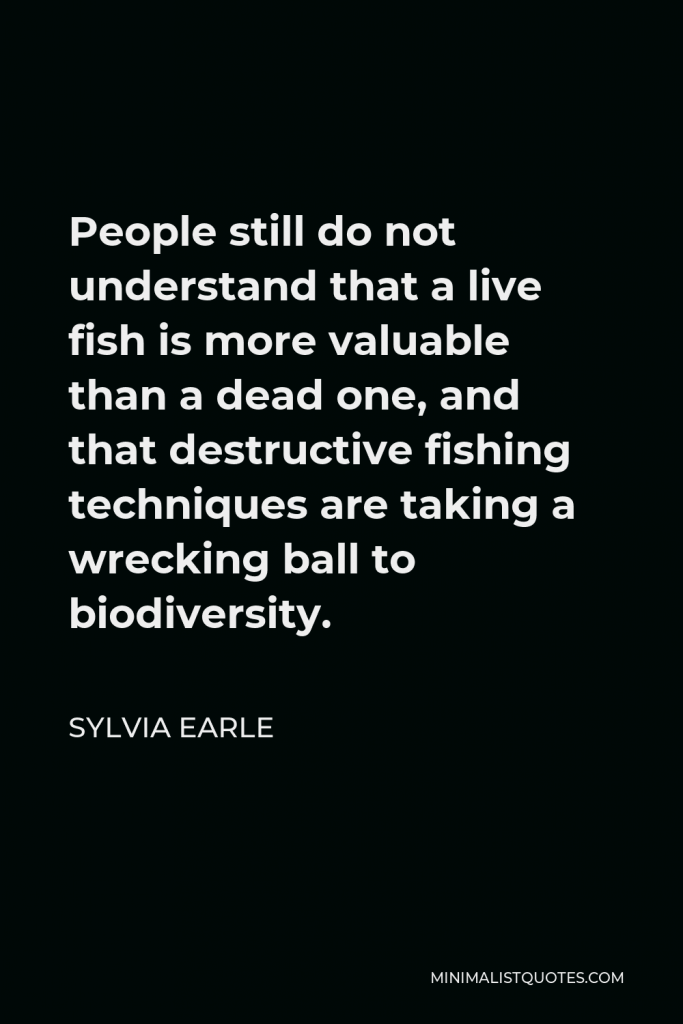

People still do not understand that a live fish is more valuable than a dead one, and that destructive fishing techniques are taking a wrecking ball to biodiversity.
SYLVIA EARLE -





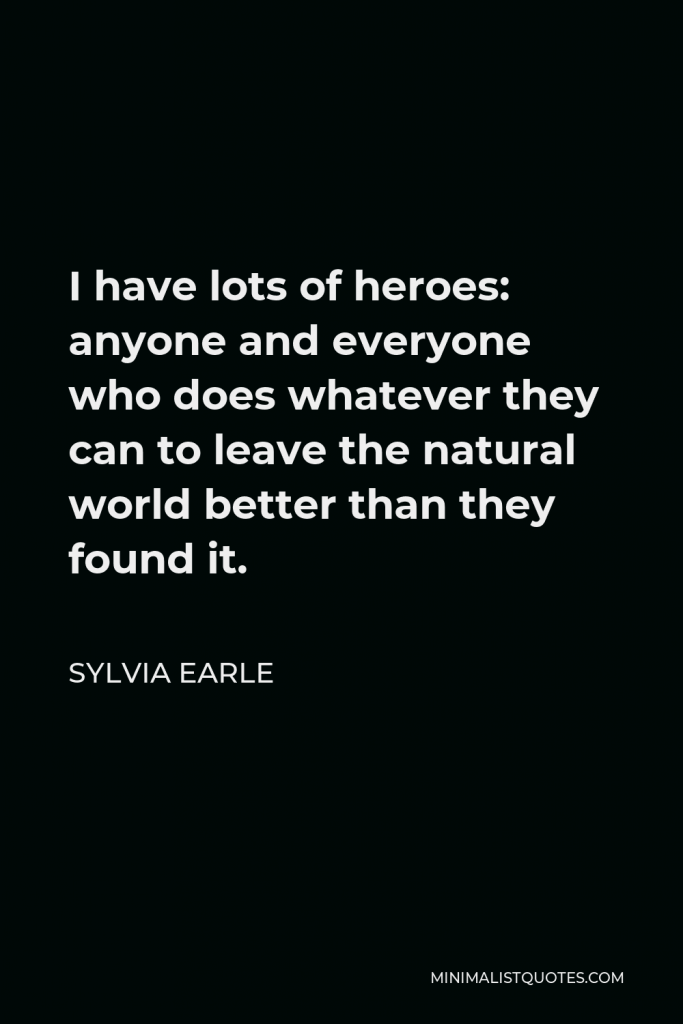

I have lots of heroes: anyone and everyone who does whatever they can to leave the natural world better than they found it.
SYLVIA EARLE -





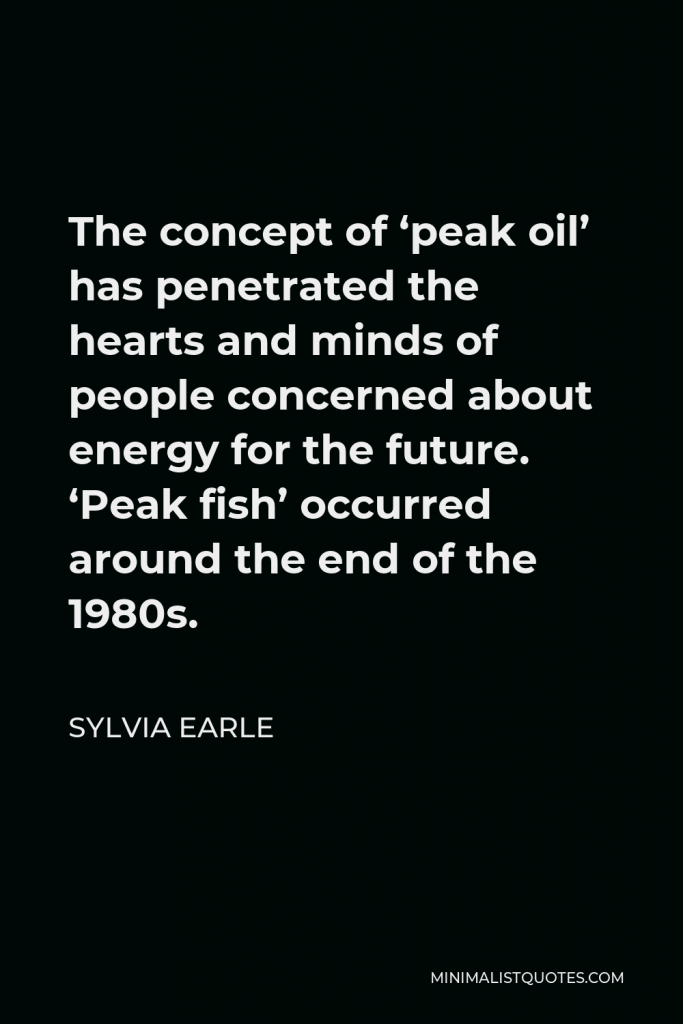

The concept of ‘peak oil’ has penetrated the hearts and minds of people concerned about energy for the future. ‘Peak fish’ occurred around the end of the 1980s.
SYLVIA EARLE -





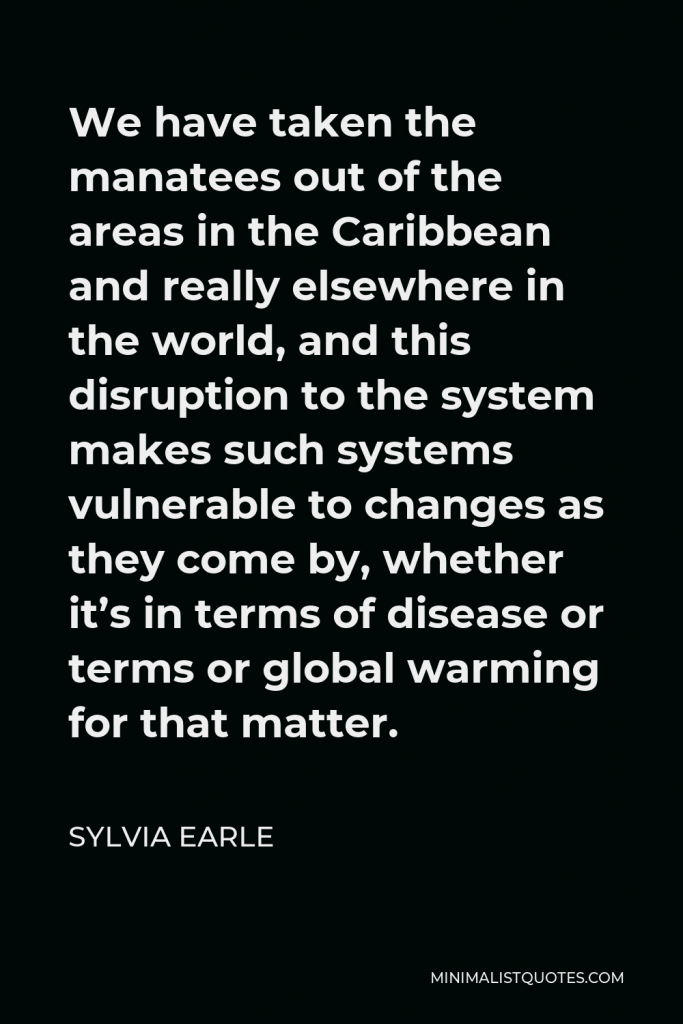

We have taken the manatees out of the areas in the Caribbean and really elsewhere in the world, and this disruption to the system makes such systems vulnerable to changes as they come by, whether it’s in terms of disease or terms or global warming for that matter.
SYLVIA EARLE
